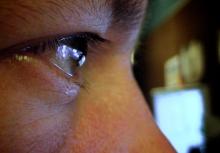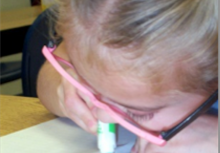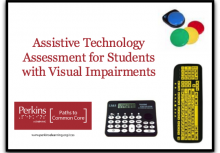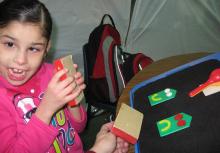and by Marlena Chu, OD, FAAO
The visual demands of learning are constant as students progress through elementary, middle and high school. For students who have low vision, the impact of visual fatigue can challenge and impede educational progress....
Learning Media Assessment

Posted by Liz Barclay
Posted by Jaime Brown
Write accurate information
It is critical that when you are writing about the student’s medical condition(s) that you are accurate and reliable. Refrain from copying from last year’s report or IEP. Errors could be in the previous...

Posted by Penny Rosenblum
Parents often wonder if their child who has a significant visual impairment should learn braille, print, or both literacy media at the same time. They also question what role audio materials (e.g., books on CDs or downloaded to a special device) should...

Posted by Wendy Miller
By TVIs Krista Papish and Wendy Miller, with support from Cindy White-Botello
How does learning occur? While many of us do this with very little effort, for children with visual impairments and additional disabilities it is an ongoing...

Posted by Jaime Brown
Introduction
Settings
Activities
Introduction:
A Learning Media Assessment (LMA) is an evaluation process that allows the observer to identify the student’s primary and secondary learning channel, i.e. whether...

Posted by Tara Mason
The TVI Experience
Typically, you will find that TVIs report a few different scenarios in their school district. A TVI either has:
One or more technology specific district team members to help with an AT assessment or evaluation and...

Posted by Faye Gonzalez
In an earlier blog post, I discussed guidelines for Using a Picture Symbol System for Communication and Literacy. In addition to the factors discussed in that post, another crucial consideration in designing a communication system for students...
